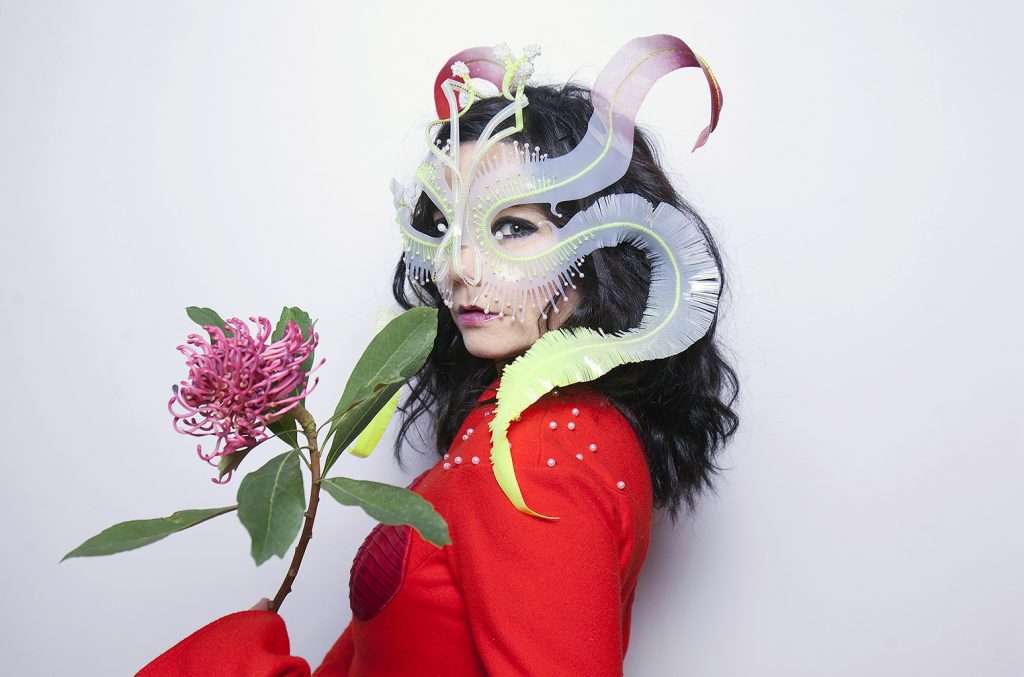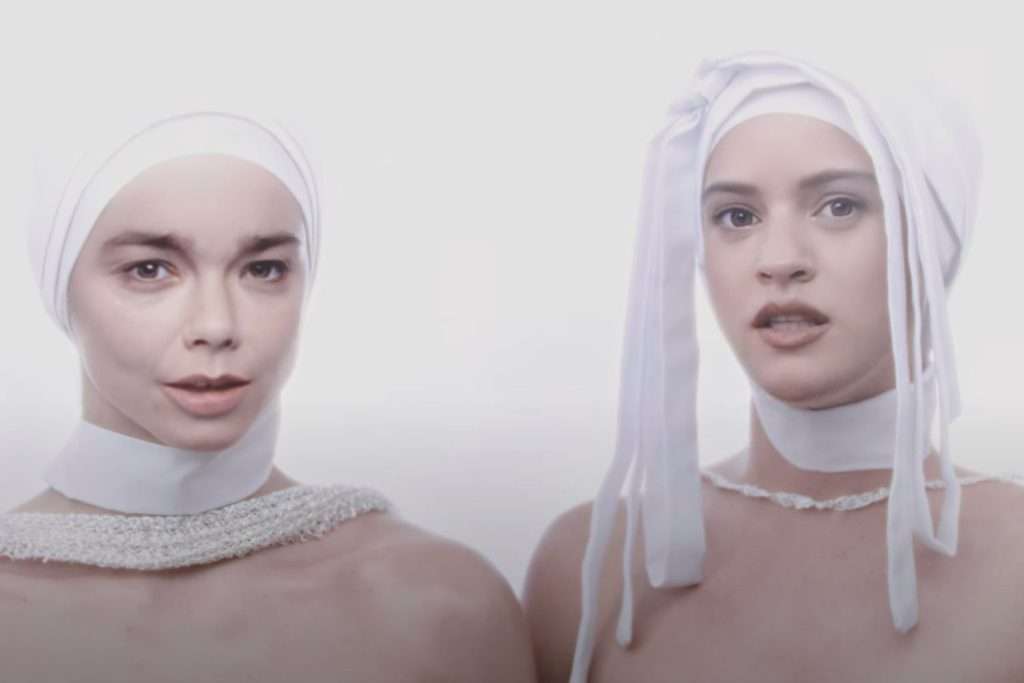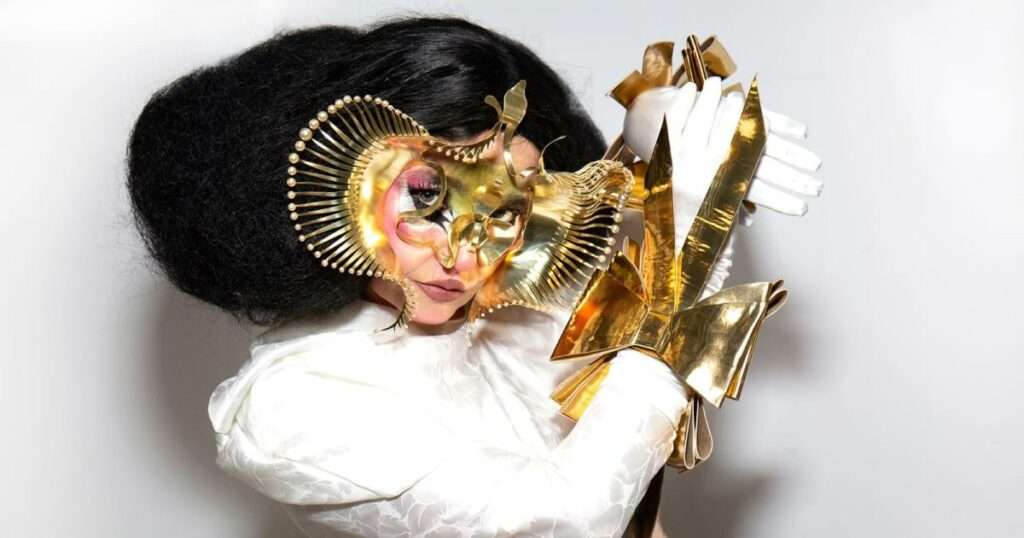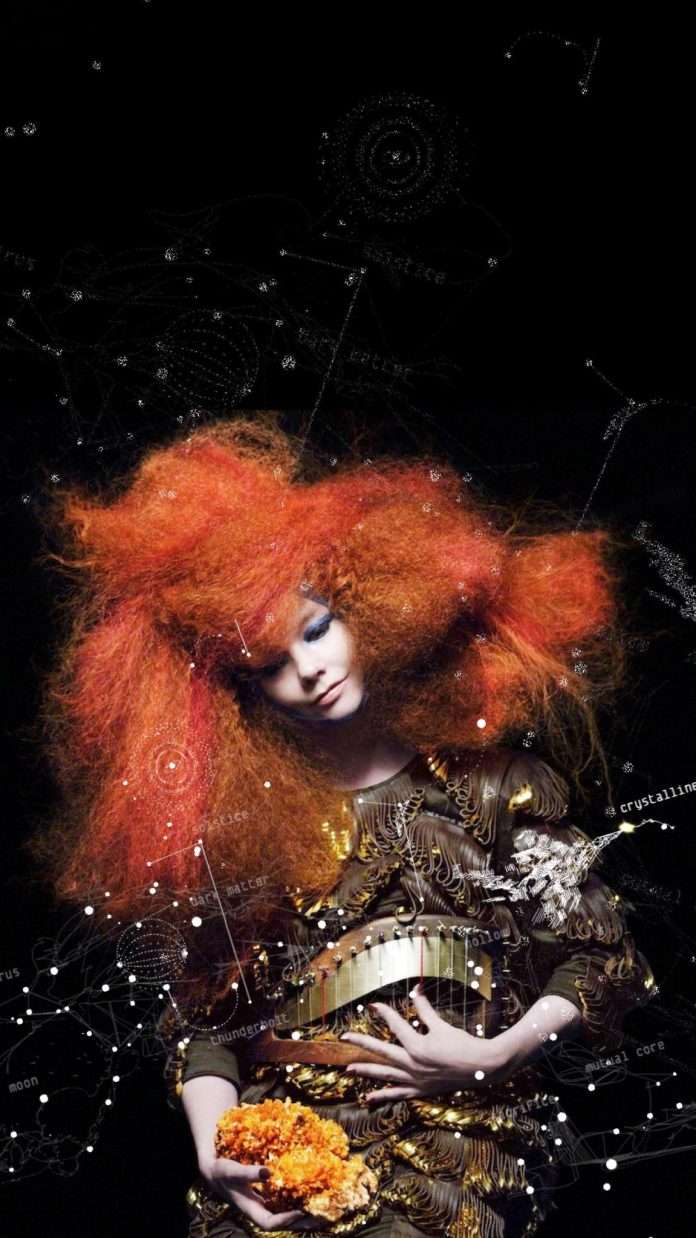Performing artist Björk is using her platform to tackle environmental issues including whaling and open-pen fish farming.
In October 2022, Icelandic musician Björk (Guðmundsdóttir) and Swedish climate activist Greta Thunberg sat down together for a conversation on the New Statesman’s World Review podcast.
“I just read your book [Thunberg’s anthology The Climate Book],” Björk told the activist. “And I’m inspired and sad, because the [climate] situation is worse even than we thought it was, but there are some hope-inspiring moments there, to encourage us to act.”
Björk, 58, has been using her platform to speak about environmental issues since the ’90s, the singer told NME. “I agreed to do a few things and it frustrated me. Suddenly I was in this non-profit universe with a lot of hierarchy and politics. I felt that I could have the biggest impact on the environment at home, and give to one thing at a time; put all the eggs in the basket and follow it through,” she said.
“Obviously, it wasn’t me alone. There is a big group of environmentalists in Iceland; often, I’m the face of it, but it is a voluntary job, and it takes a lot of energy. We joke about it — we have to take turns in holding the torch, because people burn out. You get very exhausted,” she said.

But if she’s faced burnout in the past, it seems the singer is experiencing a renewed commitment in recent months taking on whaling and, most recently, salmon farming in Iceland. “I thought we’d be doing better with environmental things,” Björk told NME. “We reacted so strongly to the COVID pandemic; all governments worked and we invented the fucking vaccine in 10 months or something. It was a miracle for seven billion people. I would hope we would react as strongly to the environment,” she said.
That is unfortunately not the case; Iceland is one of only three countries in the world that still allows commercial whaling. The practice was banned temporarily by the Icelandic government in June, following a series of protests some of which Björk attended. The whaling ban expired on August 31st with Iceland’s government saying commercial whaling would resume with increased monitoring and stricter hunting regulations.
“These new measures are pointless and irrelevant,” Luke McMillan, an anti-whaling campaigner at Whale and Dolphin Conservation told The Guardian in August. “Training, education, and better equipment or killing methods — the measures they have put in place — will never make whaling acceptable. There is no humane way to kill whales at sea and they will still suffer,” he said, calling the decision “hugely disappointing and a massive step backwards.”
Björk agreed with that sentiment and took to Instagram shortly after the ban was lifted to decry the return of whale hunting. The singer, known for an eccentricity that often extends to cryptic lyrics, was straightforward on the issue. “I’m so sorry” read her post caption over an image of a whale.
Earlier this year, the singer urged the world’s leading tech billionaires to explore more sustainable solutions for touring musicians. “I was hoping Elon Musk and his tech friends would make electric tour buses or solar- and wind-powered cruise ships… could you pass that message to him please?” Björk told AFP.
“Maybe there could be a Coachella-like festival boat that travels the oceans with no flying included,” she said. The singer’s most recent touring show, Cornucopia, is centered around nature and technology. Iceland schools now include a syllabus section from the Biophilia Educational Project, based on her 2011 Biophilia album. The project is focused on teaching music and technology.
Now, the singer is back to put her weight behind another environmental cause. Last week, she debuted “Oral,” a duet with Spanish singer Rosalía, aimed at tackling open-pen ocean salmon farming in Iceland. Proceeds from the track will support organizations working to address the issue. The track was self-produced by the artists, working alongside Sega Bodega. Initially written by Björk more than twenty years ago during the period between her albums ‘Homogenic’ and ‘Vespertine,’ the song remained unreleased and nearly forgotten.
Björk says she was inspired to revisit “Oral” after learning about the detrimental impacts of unregulated salmon farming in Iceland. This industry, predominantly run by Norwegian entrepreneurs, has seen a dramatic expansion since 2014, endangering local wild salmon and the broader marine ecosystem.
“It’s like two Norwegian billionaires,” she told The Guardian. “They fucked everything up in Norway. And now they have come to Iceland. People say it’s like the bank crash, a few people getting millions and [nobody else] getting anything.”
The issue came to a head in August — just as Iceland was lifting its ban on whaling. Thousands of farmed salmon escaped their pens and invaded Iceland’s rivers. “We were sending divers with harpoons, trying to capture them,” Björk says. The effort was unsuccessful, which she says led the “mutant fish” to spread sea lice to the local fish stocks, something the industry disputes.

But open-pen salmon farming, which has become a prevalent method in aquaculture, faces significant challenges impacting both the environment and the fish themselves. This practice often leads to the spread of parasites, like sea lice, which thrive in the dense populations of captive salmon and can spread to wild fish. Moreover, waste products, including uneaten food and feces, accumulate beneath these pens, causing detrimental effects on local ecosystems. The risk of farmed salmon escaping into the wild also poses a threat, as they can compete with native populations for resources and potentially breed, leading to genetic dilution.
“Iceland’s natural beauty, including our stunning coastal waters, is a national treasure that must be preserved for generations to come,” the singer said in a statement. “We cannot compromise the health of our seas for short-term economic gain.”
The music video for “Oral,” directed by Carlota Guerrero and executive produced by Zico Judge of Blur & ProdCo, delves into the realms of AI and virtual reality. It blurs the lines between the physical and digital worlds while addressing themes of identity and female empowerment. The video features avatars of Björk and Rosalía, who come together not in opposition to each other but united against the environmental havoc wreaked by the open-pen salmon farming.

“We are working with ten different environmental groups in Iceland for this: Ungir Umhverfissinnar, VÁ félag um vernd fjarðar, Landssamband Veiðifélaga, Verndarsjóður villtra laxastofna, Íslenski náttúruverndarsjóðurinn, Landvernd, Náttúruverndarsamtök Íslands, The Icelandic Wildlife Fund, NASF and Laxinn lifi,” the singer told the Reykjavik Grapevine. “This is such an important case, we are all uniting in the hope we can change this for good.”
Björk says she’s hopeful about reducing salmon farming. “I have fought for environmental cases for a long time now and learned the hard way it is important to harness the energy of activism into reality and guide its flow to legal laws or places where it actually changes things for good,” she said. “Not just, ‘preach for the choir,’ or go all sassy mad on social media. That is too easy. It needs to change our systems.”
The singer says she’s spoken with experts and there’s still time to “reverse this problem,” she says. “The Icelandic wild salmon can be saved. That’s why this is such an important battle to fight and win and give hope to the next generations.”
“Biology is stronger than you think,” Björk told The Guardian.
Related on Ethos:


